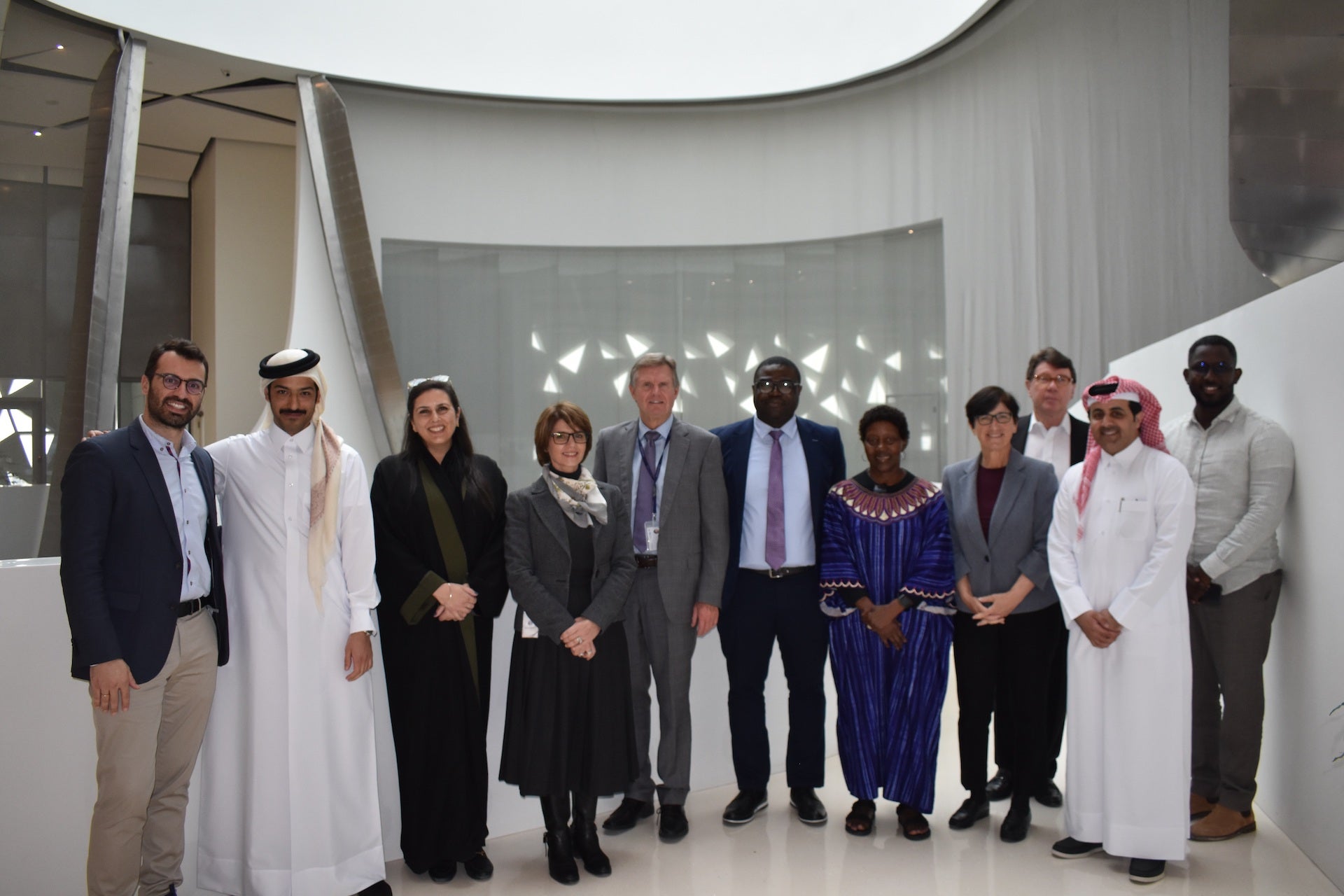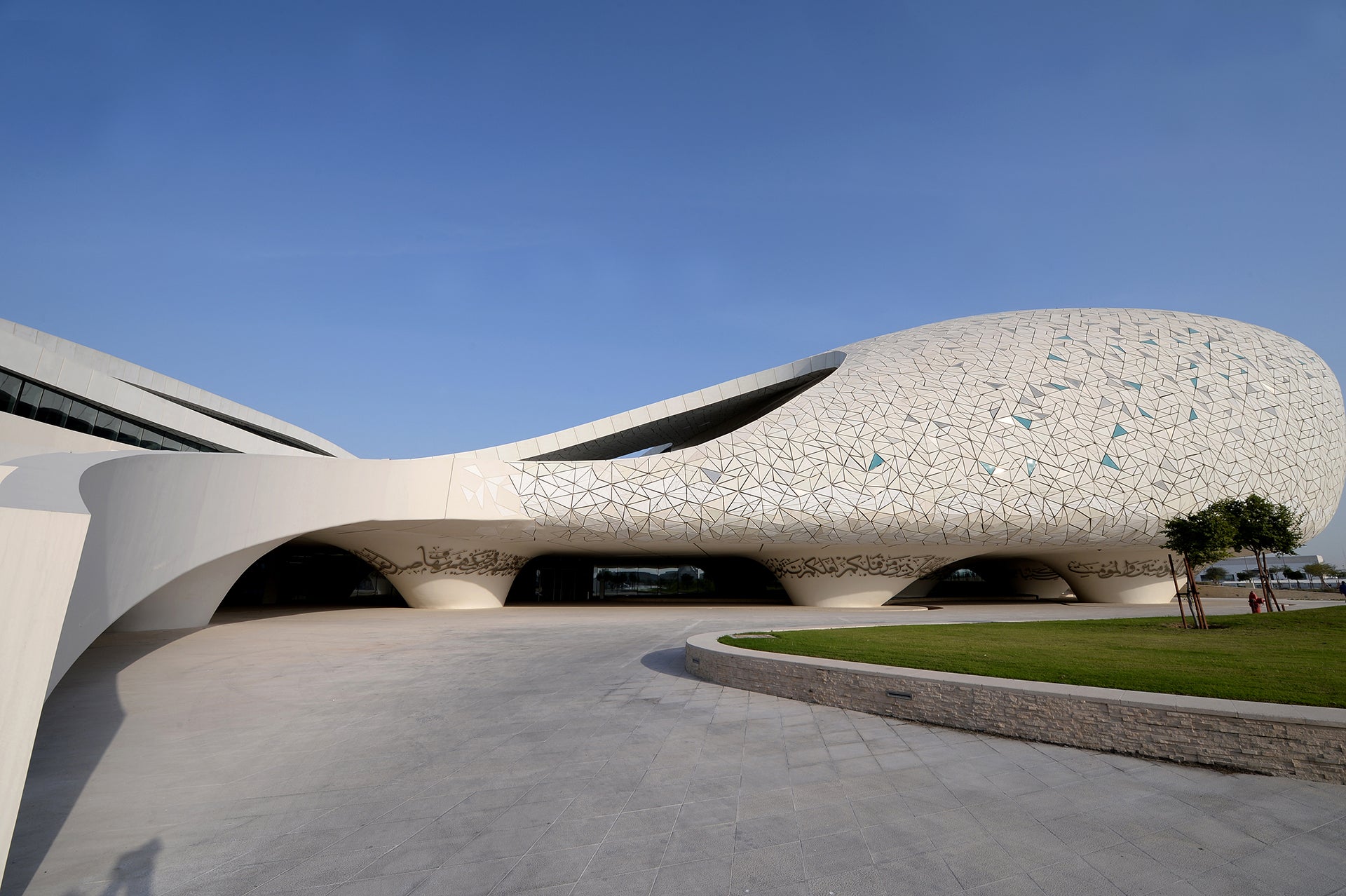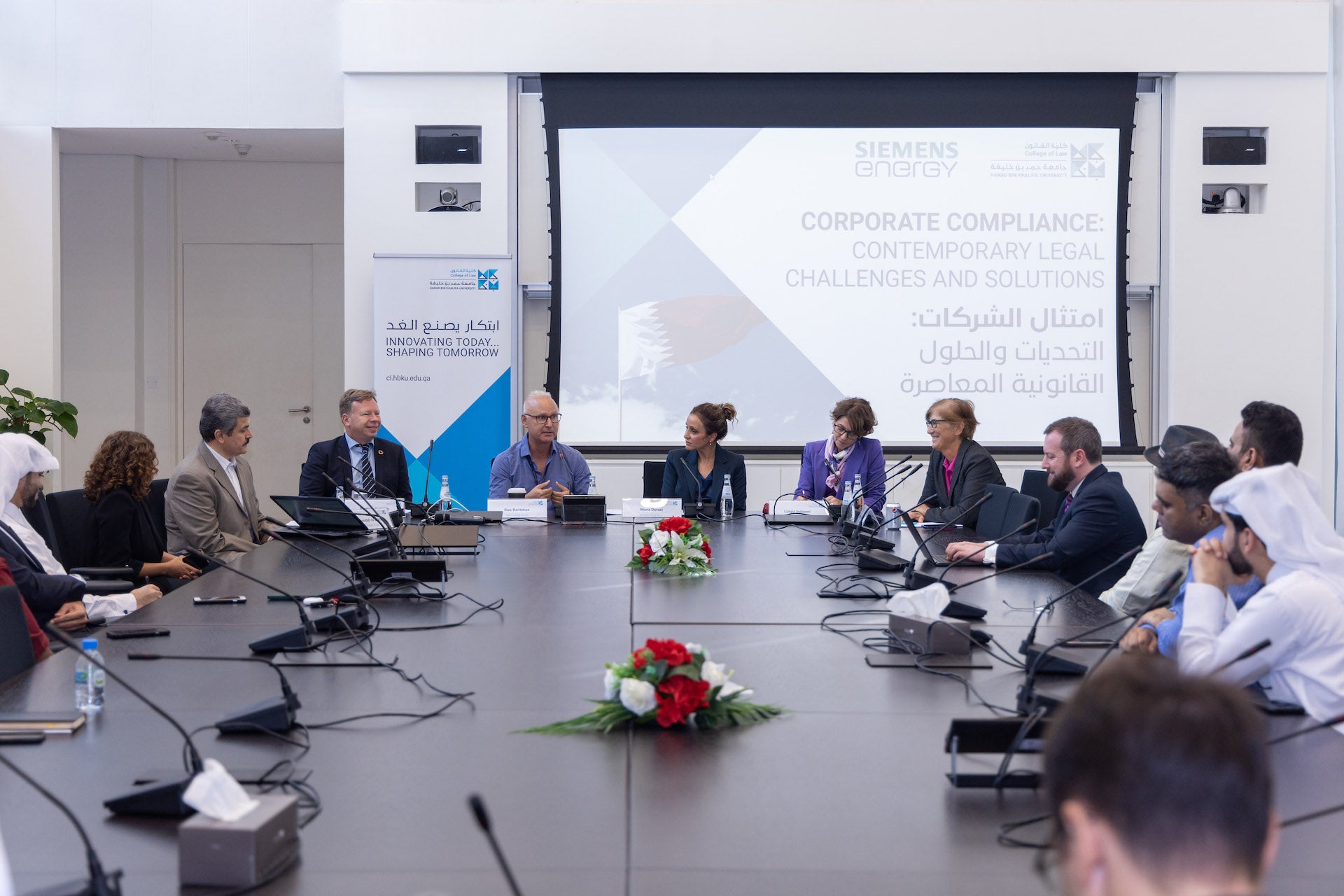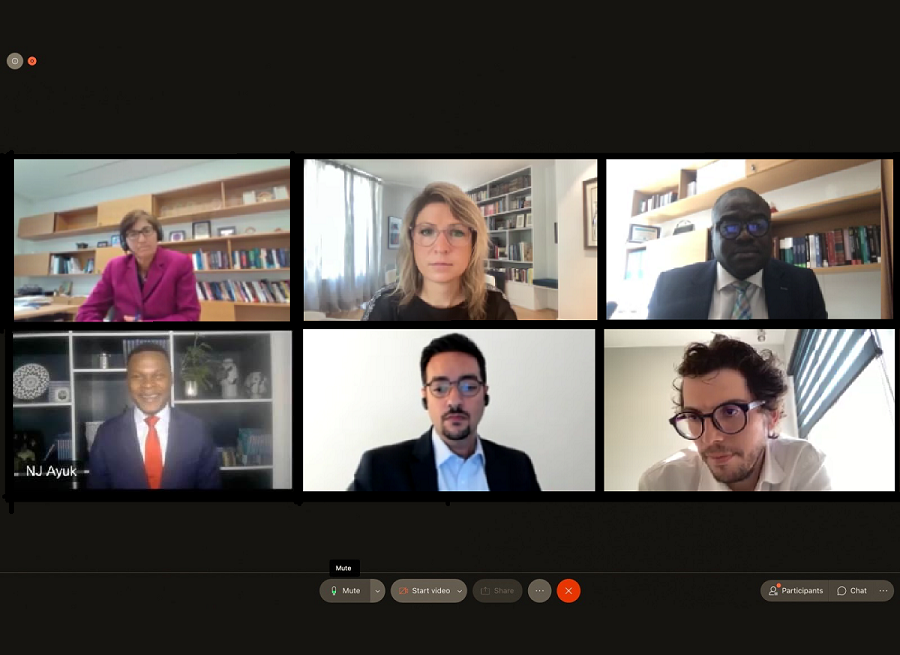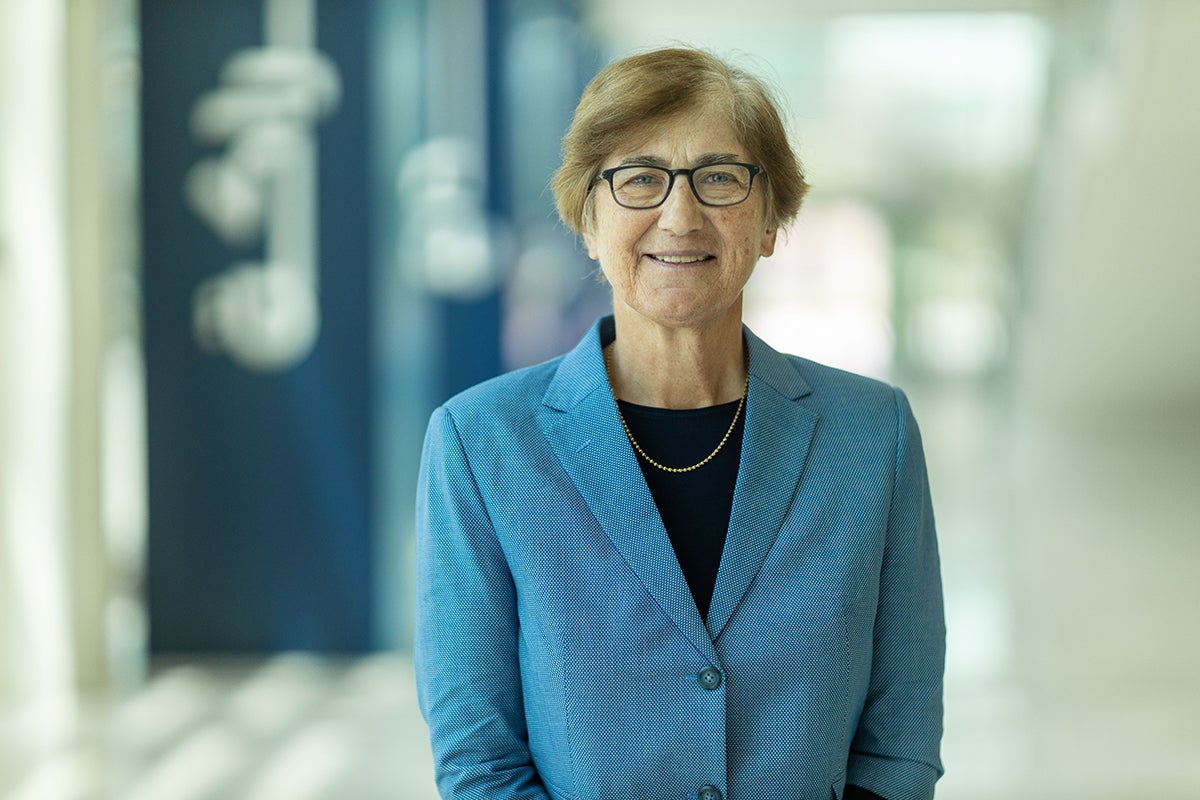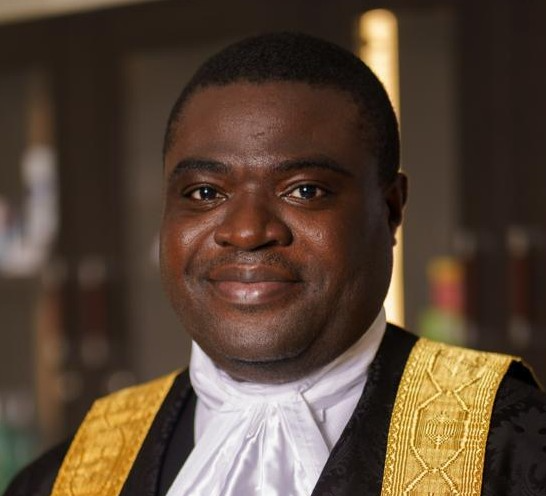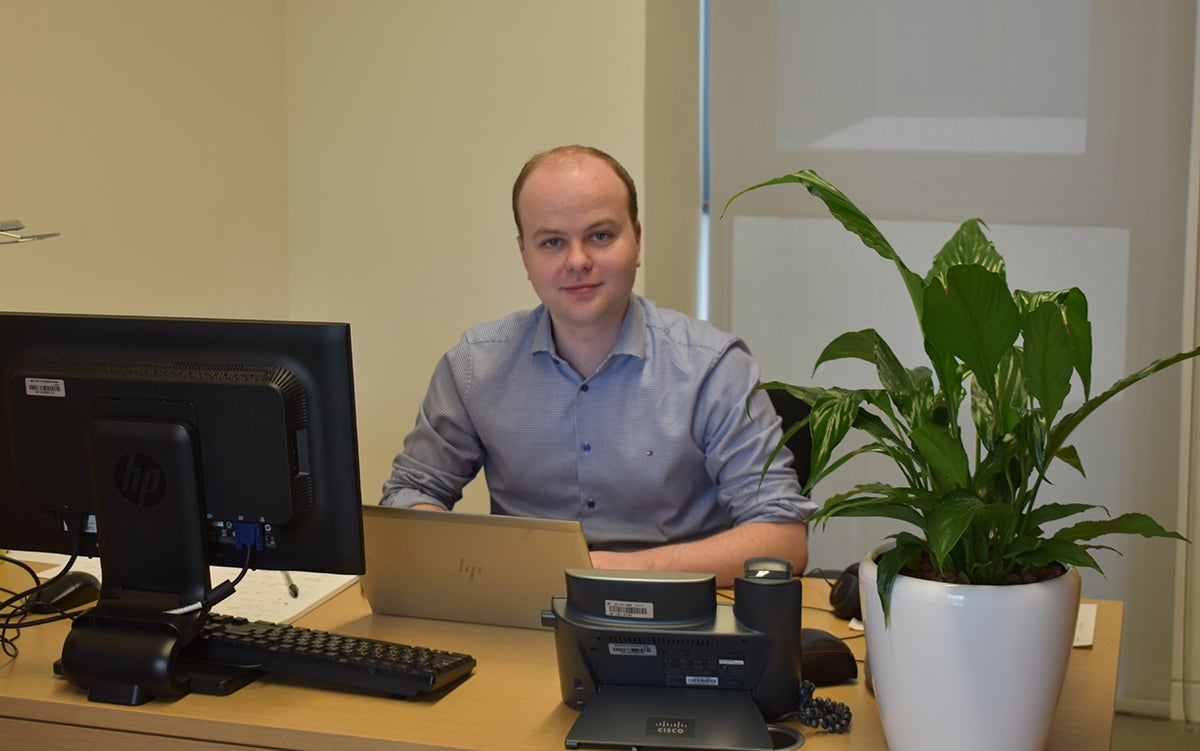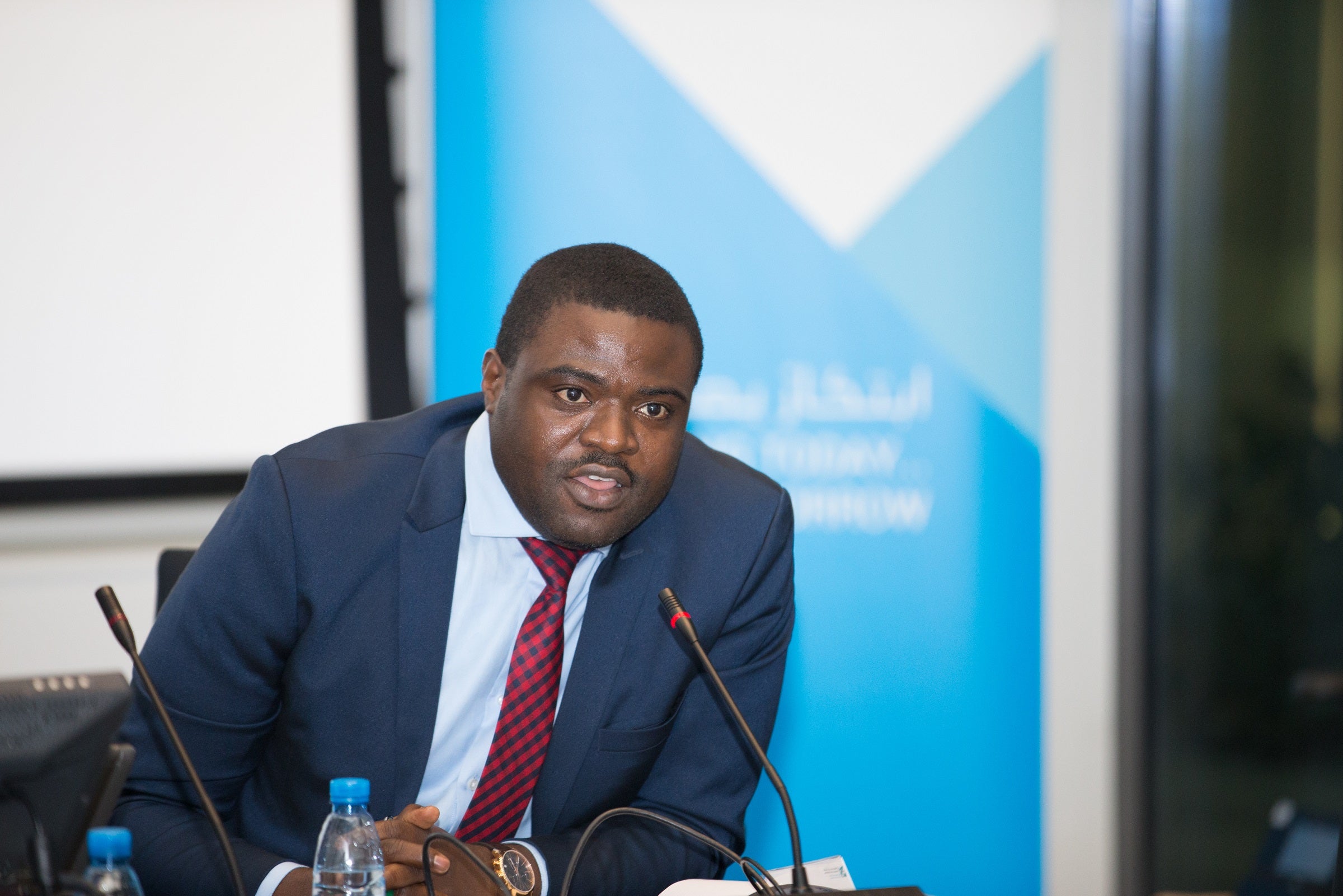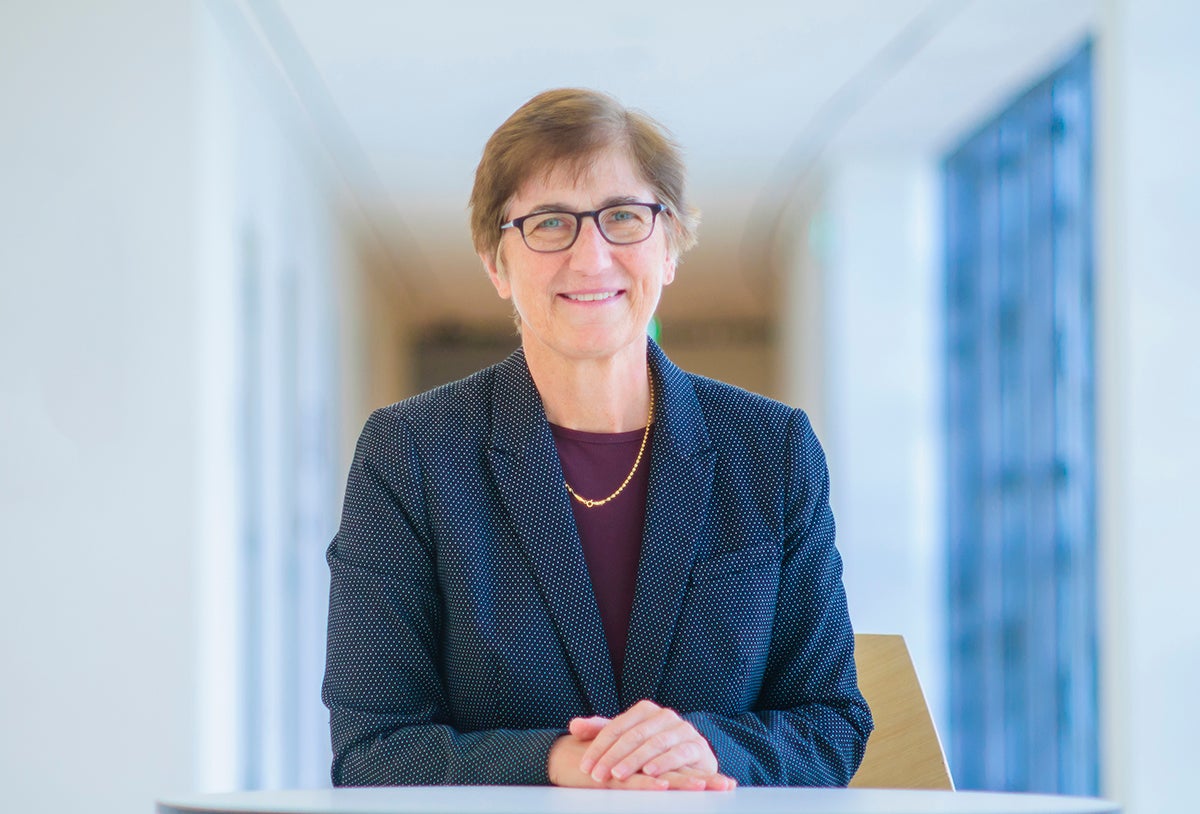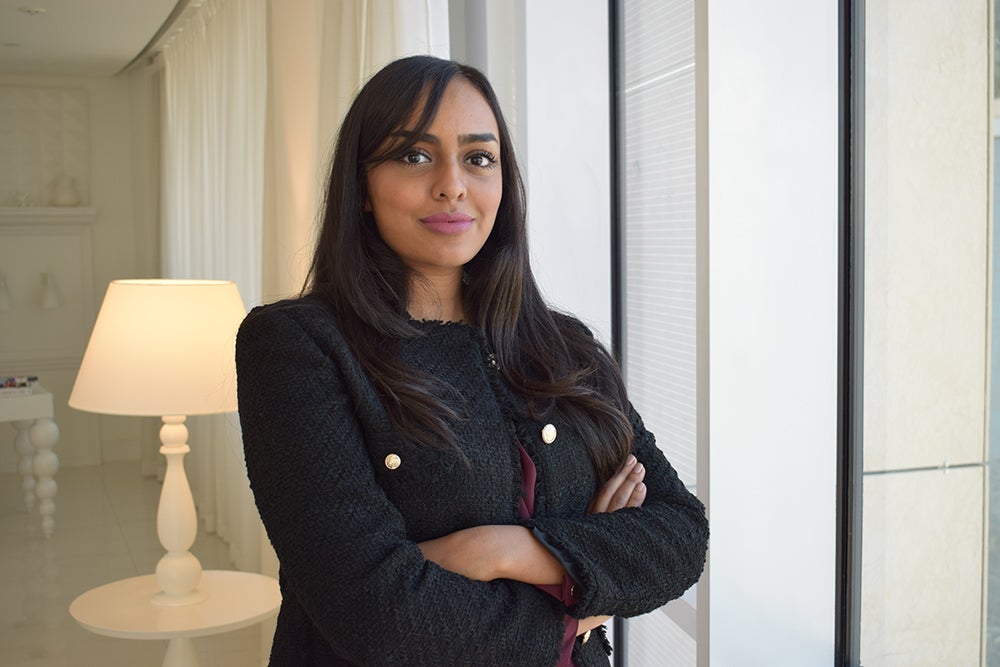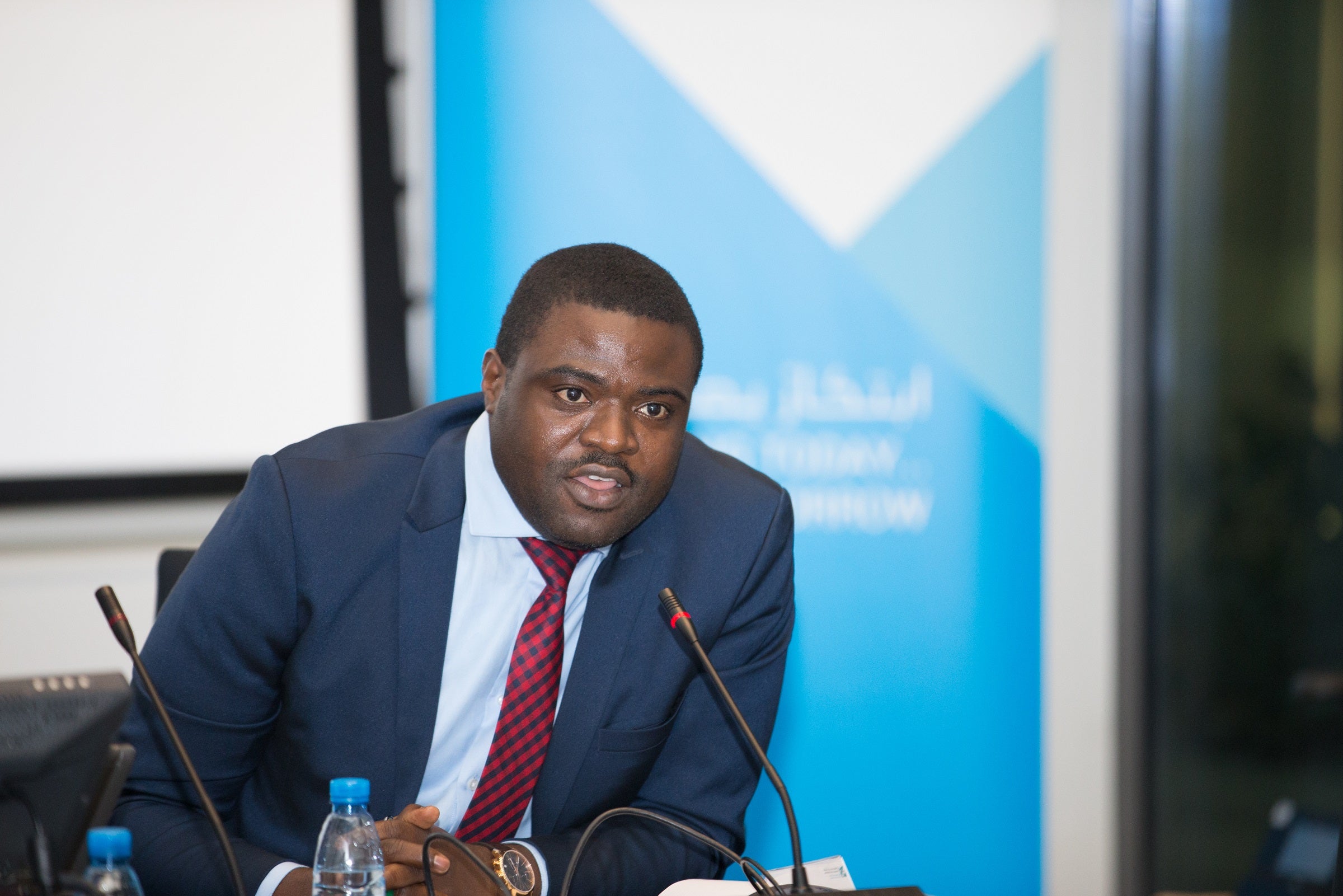
Legal Frameworks for AI and Art Explored at College of Law Event
Insights of Education City artists raise intriguing legal issues

The College of Law, part of Hamad Bin Khalifa University (HBKU), recently hosted its first seminar in the Law and Tech Talk Series, featuring three Education City artists who described how technology, including Artificial Intelligence (AI), is shaping their art. Their insights fostered a critique of the existing legal regime to protect artists.
Art has evolved side-by-side with the developments in technology. The three Education City artists demonstrated how, with the emergence of technology, computers can create sophisticated works of art in a way that could minimize - or even eliminate - human input. Hadeer Omar, Assistant Professor at Virginia Commonwealth University School of the Arts in Qatar (VCUQ); Jesse Payne, Associate Professor, VCUQ; and Dr. James She, Associate Professor, College of Science and Engineering, HBKU, have been at the forefront of their field. Dr. She, a computer engineer by training, launched the first AI and art event in Qatar in 2019.
The legal implications of the art they generate - through AI technologies and other digital tools - are slowly emerging. The seminar presented several open-ended questions and explored whether the result is actually art; who the artist is; and the nature of ownership when reflecting the artwork of others or resulting from an algorithm.
Dean Susan L. Karamanian, from HBKU’s College of Law, moderated the discussion. The nuanced exchange highlighted the legal challenges of regulating and interpreting copyrights, authorship, and contractual aspects such as financing and reproduction.
After the seminar, Dean Karamanian remarked: “The work of Education City artists raises the fundamental issue of whether the existing legal regime is sufficient to protect the rights of creators. The situation is ripe for an interdisciplinary approach as any legal reform must understand how artists use technology, which can involve complex processes. Our speakers aptly highlighted areas in which our current legal discourse has shortcomings. We are already integrating these areas in our research and teachings at the College of Law, and - through our Law and Tech Talk Series - we hope to continue these conversations and encourage a forward-thinking approach to our analysis of societal and technological changes.”
Related News
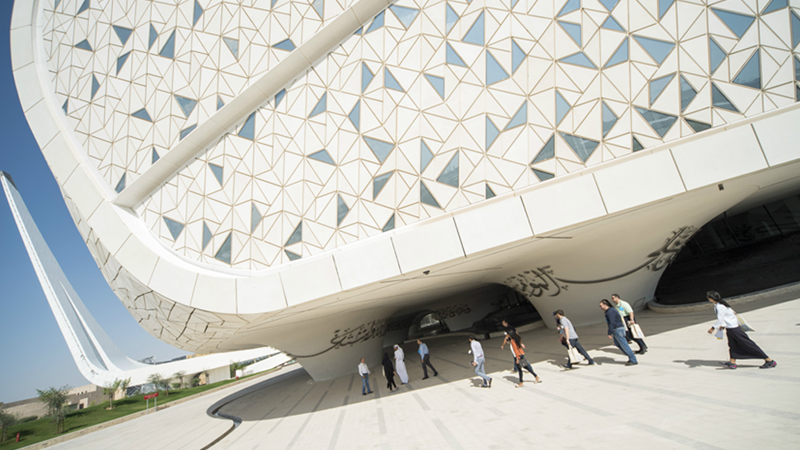
HBKU’S College of Law and Public Policy Colloquium to Examine Dispute Resolution Between Countries
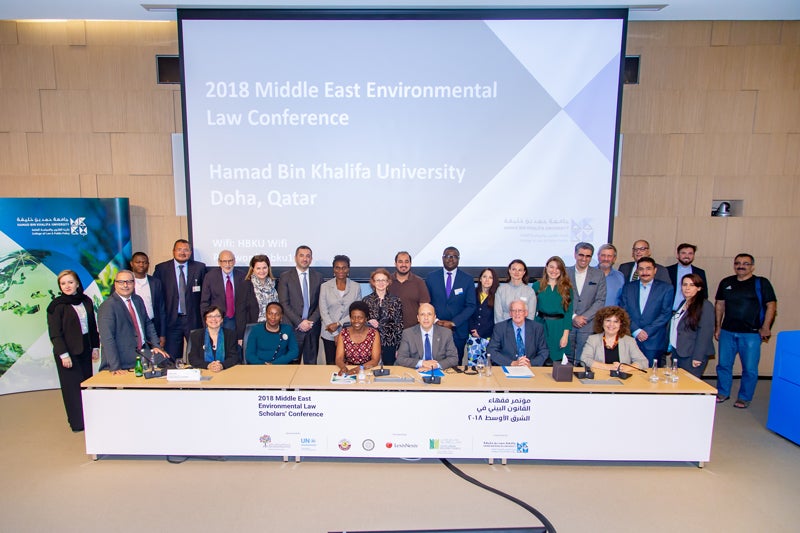
HBKU Conference Highlights Need to Introduce Environmental Law to Higher Education in the Middle East

The Promise of Hybrid Dispute Resolution Fora Conference to be Held at HBKU’s College of Law and Public Policy
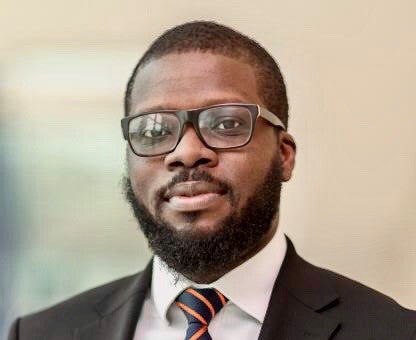
HBKU’s College of Law Faculty Selected on 2020 List of ‘35 Leaders of the Future in Taxation’

College of Law Event Joins Dots Between Eliminating Racism and Achieving Sustainable Societies
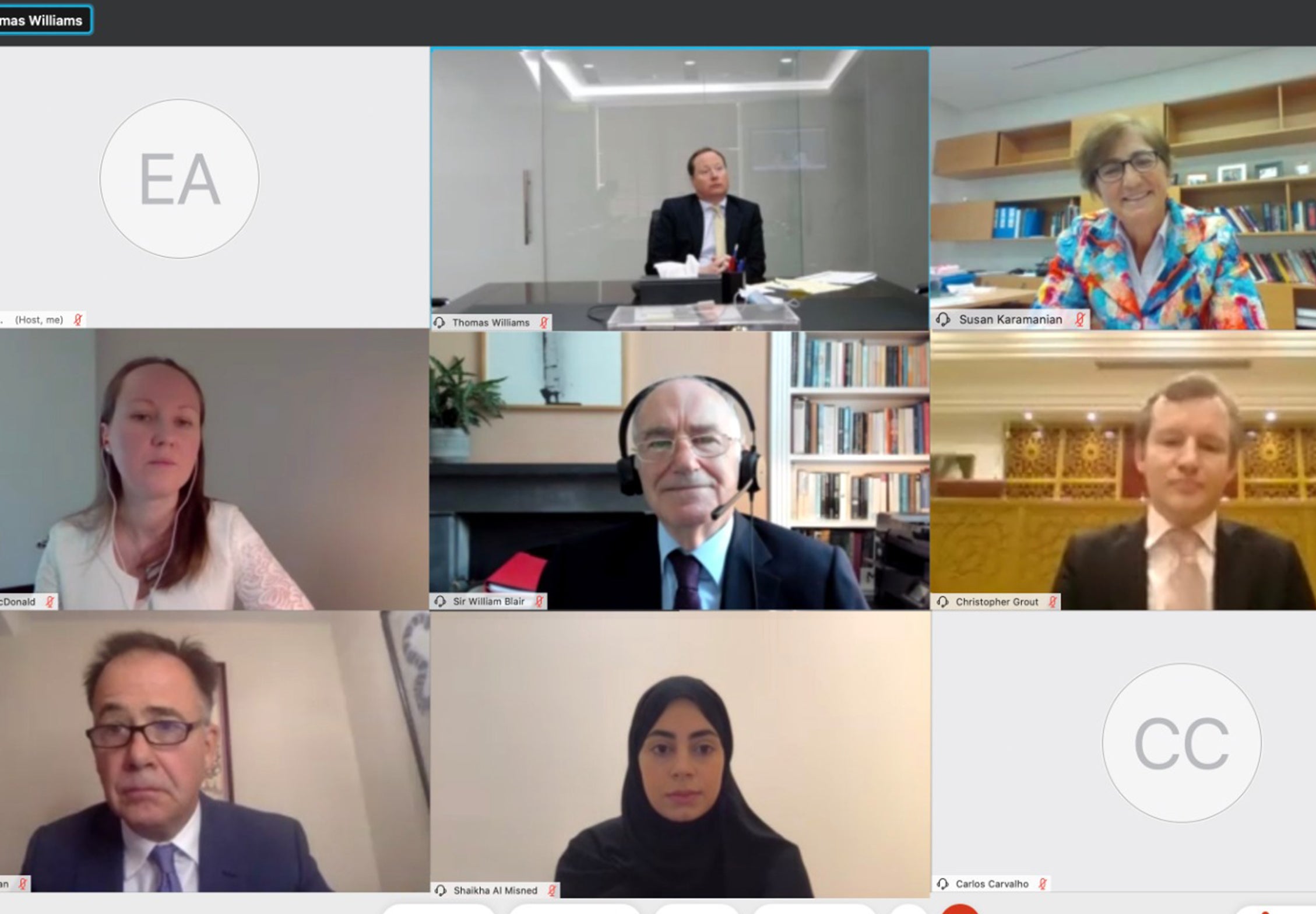
College of Law Webinar Considers Effects of COVID-19 on Commercial Contracts and Sovereign Borrowing
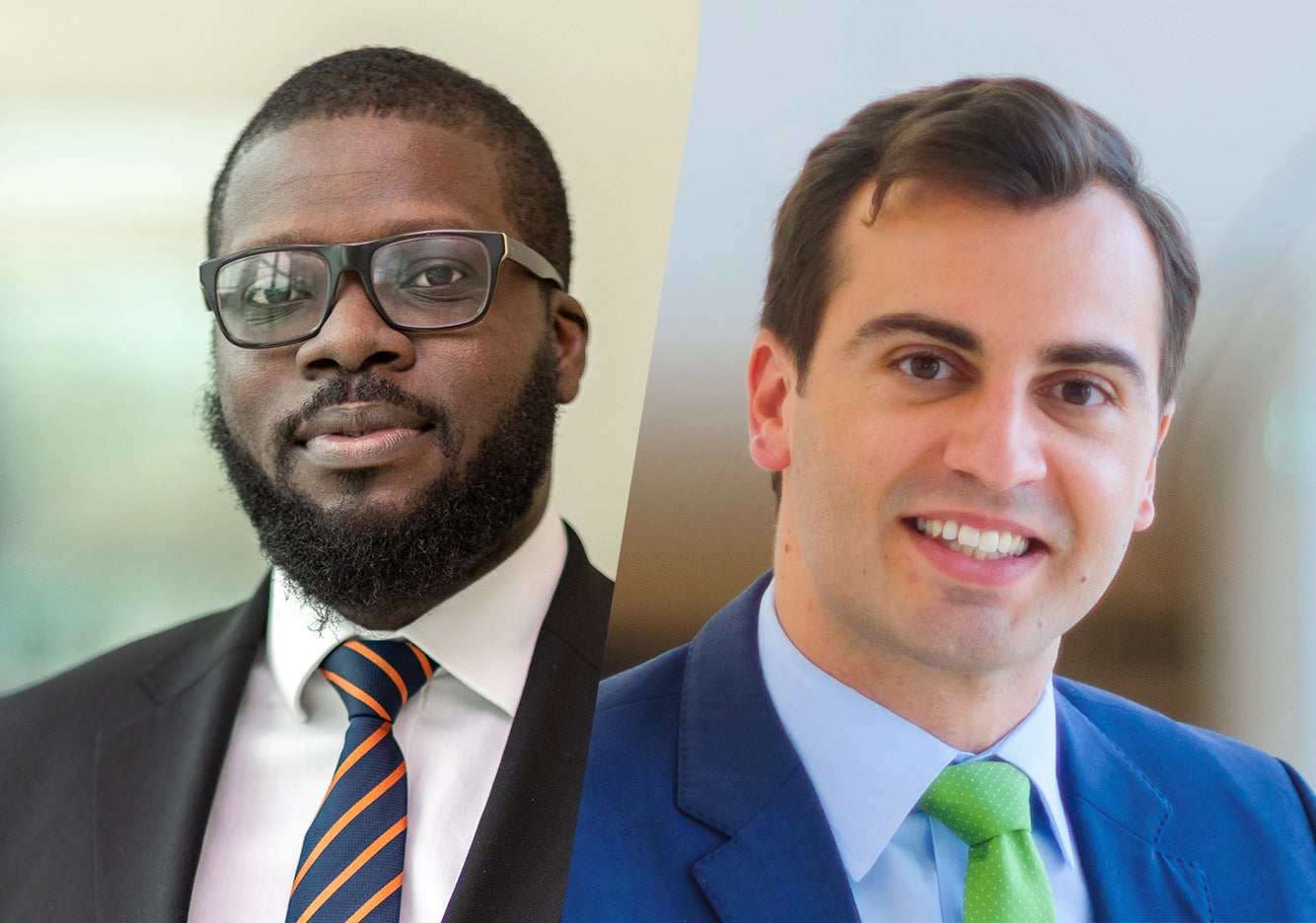
Qatar’s New Public-Private Partnership Law: Towards a Sustainable Approach to Development
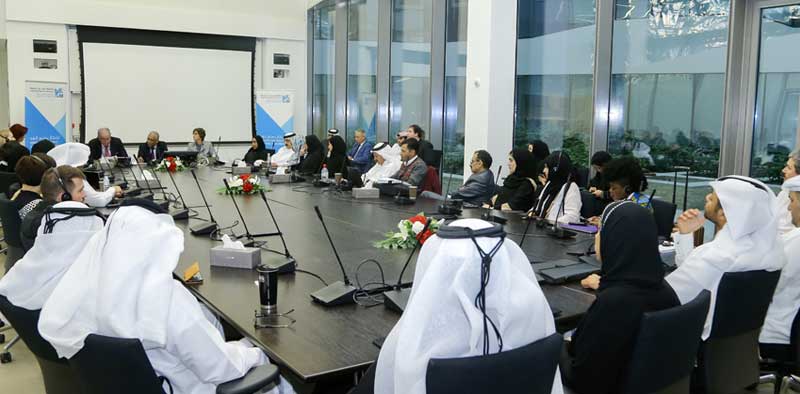
HBKU’s College of Law and Public Policy Hosts Minister-President of Paraguay’s Supreme Court of Justice

HBKU’S College of Law and Public Policy Colloquium to Examine Dispute Resolution Between Countries

HBKU Conference Highlights Need to Introduce Environmental Law to Higher Education in the Middle East

The Promise of Hybrid Dispute Resolution Fora Conference to be Held at HBKU’s College of Law and Public Policy

HBKU’s College of Law Faculty Selected on 2020 List of ‘35 Leaders of the Future in Taxation’

College of Law Event Joins Dots Between Eliminating Racism and Achieving Sustainable Societies

College of Law Webinar Considers Effects of COVID-19 on Commercial Contracts and Sovereign Borrowing

Qatar’s New Public-Private Partnership Law: Towards a Sustainable Approach to Development

HBKU’s College of Law and Public Policy Hosts Minister-President of Paraguay’s Supreme Court of Justice

HBKU’S College of Law and Public Policy Colloquium to Examine Dispute Resolution Between Countries

HBKU Conference Highlights Need to Introduce Environmental Law to Higher Education in the Middle East

The Promise of Hybrid Dispute Resolution Fora Conference to be Held at HBKU’s College of Law and Public Policy

HBKU’s College of Law Faculty Selected on 2020 List of ‘35 Leaders of the Future in Taxation’

College of Law Event Joins Dots Between Eliminating Racism and Achieving Sustainable Societies

College of Law Webinar Considers Effects of COVID-19 on Commercial Contracts and Sovereign Borrowing

Qatar’s New Public-Private Partnership Law: Towards a Sustainable Approach to Development

HBKU’s College of Law and Public Policy Hosts Minister-President of Paraguay’s Supreme Court of Justice

HBKU’S College of Law and Public Policy Colloquium to Examine Dispute Resolution Between Countries

HBKU Conference Highlights Need to Introduce Environmental Law to Higher Education in the Middle East

The Promise of Hybrid Dispute Resolution Fora Conference to be Held at HBKU’s College of Law and Public Policy

HBKU’s College of Law Faculty Selected on 2020 List of ‘35 Leaders of the Future in Taxation’

College of Law Event Joins Dots Between Eliminating Racism and Achieving Sustainable Societies

College of Law Webinar Considers Effects of COVID-19 on Commercial Contracts and Sovereign Borrowing

Qatar’s New Public-Private Partnership Law: Towards a Sustainable Approach to Development

HBKU’s College of Law and Public Policy Hosts Minister-President of Paraguay’s Supreme Court of Justice

HBKU’S College of Law and Public Policy Colloquium to Examine Dispute Resolution Between Countries

HBKU Conference Highlights Need to Introduce Environmental Law to Higher Education in the Middle East

The Promise of Hybrid Dispute Resolution Fora Conference to be Held at HBKU’s College of Law and Public Policy

HBKU’s College of Law Faculty Selected on 2020 List of ‘35 Leaders of the Future in Taxation’

College of Law Event Joins Dots Between Eliminating Racism and Achieving Sustainable Societies

College of Law Webinar Considers Effects of COVID-19 on Commercial Contracts and Sovereign Borrowing

Qatar’s New Public-Private Partnership Law: Towards a Sustainable Approach to Development

HBKU’s College of Law and Public Policy Hosts Minister-President of Paraguay’s Supreme Court of Justice

HBKU’S College of Law and Public Policy Colloquium to Examine Dispute Resolution Between Countries

HBKU Conference Highlights Need to Introduce Environmental Law to Higher Education in the Middle East

The Promise of Hybrid Dispute Resolution Fora Conference to be Held at HBKU’s College of Law and Public Policy

HBKU’s College of Law Faculty Selected on 2020 List of ‘35 Leaders of the Future in Taxation’

College of Law Event Joins Dots Between Eliminating Racism and Achieving Sustainable Societies

College of Law Webinar Considers Effects of COVID-19 on Commercial Contracts and Sovereign Borrowing

Qatar’s New Public-Private Partnership Law: Towards a Sustainable Approach to Development

HBKU’s College of Law and Public Policy Hosts Minister-President of Paraguay’s Supreme Court of Justice

HBKU’S College of Law and Public Policy Colloquium to Examine Dispute Resolution Between Countries

HBKU Conference Highlights Need to Introduce Environmental Law to Higher Education in the Middle East

The Promise of Hybrid Dispute Resolution Fora Conference to be Held at HBKU’s College of Law and Public Policy

HBKU’s College of Law Faculty Selected on 2020 List of ‘35 Leaders of the Future in Taxation’

College of Law Event Joins Dots Between Eliminating Racism and Achieving Sustainable Societies

College of Law Webinar Considers Effects of COVID-19 on Commercial Contracts and Sovereign Borrowing

Qatar’s New Public-Private Partnership Law: Towards a Sustainable Approach to Development

HBKU’s College of Law and Public Policy Hosts Minister-President of Paraguay’s Supreme Court of Justice

HBKU’S College of Law and Public Policy Colloquium to Examine Dispute Resolution Between Countries

HBKU Conference Highlights Need to Introduce Environmental Law to Higher Education in the Middle East

The Promise of Hybrid Dispute Resolution Fora Conference to be Held at HBKU’s College of Law and Public Policy

HBKU’s College of Law Faculty Selected on 2020 List of ‘35 Leaders of the Future in Taxation’

College of Law Event Joins Dots Between Eliminating Racism and Achieving Sustainable Societies

College of Law Webinar Considers Effects of COVID-19 on Commercial Contracts and Sovereign Borrowing

Qatar’s New Public-Private Partnership Law: Towards a Sustainable Approach to Development

HBKU’s College of Law and Public Policy Hosts Minister-President of Paraguay’s Supreme Court of Justice

HBKU’S College of Law and Public Policy Colloquium to Examine Dispute Resolution Between Countries

HBKU Conference Highlights Need to Introduce Environmental Law to Higher Education in the Middle East

The Promise of Hybrid Dispute Resolution Fora Conference to be Held at HBKU’s College of Law and Public Policy

HBKU’s College of Law Faculty Selected on 2020 List of ‘35 Leaders of the Future in Taxation’

College of Law Event Joins Dots Between Eliminating Racism and Achieving Sustainable Societies

College of Law Webinar Considers Effects of COVID-19 on Commercial Contracts and Sovereign Borrowing

Qatar’s New Public-Private Partnership Law: Towards a Sustainable Approach to Development

HBKU’s College of Law and Public Policy Hosts Minister-President of Paraguay’s Supreme Court of Justice

HBKU’S College of Law and Public Policy Colloquium to Examine Dispute Resolution Between Countries

HBKU Conference Highlights Need to Introduce Environmental Law to Higher Education in the Middle East

The Promise of Hybrid Dispute Resolution Fora Conference to be Held at HBKU’s College of Law and Public Policy

HBKU’s College of Law Faculty Selected on 2020 List of ‘35 Leaders of the Future in Taxation’

College of Law Event Joins Dots Between Eliminating Racism and Achieving Sustainable Societies

College of Law Webinar Considers Effects of COVID-19 on Commercial Contracts and Sovereign Borrowing

Qatar’s New Public-Private Partnership Law: Towards a Sustainable Approach to Development

HBKU’s College of Law and Public Policy Hosts Minister-President of Paraguay’s Supreme Court of Justice

HBKU’S College of Law and Public Policy Colloquium to Examine Dispute Resolution Between Countries

HBKU Conference Highlights Need to Introduce Environmental Law to Higher Education in the Middle East

The Promise of Hybrid Dispute Resolution Fora Conference to be Held at HBKU’s College of Law and Public Policy

HBKU’s College of Law Faculty Selected on 2020 List of ‘35 Leaders of the Future in Taxation’

College of Law Event Joins Dots Between Eliminating Racism and Achieving Sustainable Societies

College of Law Webinar Considers Effects of COVID-19 on Commercial Contracts and Sovereign Borrowing

Qatar’s New Public-Private Partnership Law: Towards a Sustainable Approach to Development

HBKU’s College of Law and Public Policy Hosts Minister-President of Paraguay’s Supreme Court of Justice

HBKU’S College of Law and Public Policy Colloquium to Examine Dispute Resolution Between Countries

HBKU Conference Highlights Need to Introduce Environmental Law to Higher Education in the Middle East

The Promise of Hybrid Dispute Resolution Fora Conference to be Held at HBKU’s College of Law and Public Policy

HBKU’s College of Law Faculty Selected on 2020 List of ‘35 Leaders of the Future in Taxation’

College of Law Event Joins Dots Between Eliminating Racism and Achieving Sustainable Societies

College of Law Webinar Considers Effects of COVID-19 on Commercial Contracts and Sovereign Borrowing

Qatar’s New Public-Private Partnership Law: Towards a Sustainable Approach to Development

HBKU’s College of Law and Public Policy Hosts Minister-President of Paraguay’s Supreme Court of Justice

HBKU’S College of Law and Public Policy Colloquium to Examine Dispute Resolution Between Countries

HBKU Conference Highlights Need to Introduce Environmental Law to Higher Education in the Middle East

The Promise of Hybrid Dispute Resolution Fora Conference to be Held at HBKU’s College of Law and Public Policy

HBKU’s College of Law Faculty Selected on 2020 List of ‘35 Leaders of the Future in Taxation’

College of Law Event Joins Dots Between Eliminating Racism and Achieving Sustainable Societies

College of Law Webinar Considers Effects of COVID-19 on Commercial Contracts and Sovereign Borrowing

Qatar’s New Public-Private Partnership Law: Towards a Sustainable Approach to Development

HBKU’s College of Law and Public Policy Hosts Minister-President of Paraguay’s Supreme Court of Justice

HBKU’S College of Law and Public Policy Colloquium to Examine Dispute Resolution Between Countries

HBKU Conference Highlights Need to Introduce Environmental Law to Higher Education in the Middle East

The Promise of Hybrid Dispute Resolution Fora Conference to be Held at HBKU’s College of Law and Public Policy

HBKU’s College of Law Faculty Selected on 2020 List of ‘35 Leaders of the Future in Taxation’

College of Law Event Joins Dots Between Eliminating Racism and Achieving Sustainable Societies

College of Law Webinar Considers Effects of COVID-19 on Commercial Contracts and Sovereign Borrowing

Qatar’s New Public-Private Partnership Law: Towards a Sustainable Approach to Development

HBKU’s College of Law and Public Policy Hosts Minister-President of Paraguay’s Supreme Court of Justice

HBKU’S College of Law and Public Policy Colloquium to Examine Dispute Resolution Between Countries

HBKU Conference Highlights Need to Introduce Environmental Law to Higher Education in the Middle East

The Promise of Hybrid Dispute Resolution Fora Conference to be Held at HBKU’s College of Law and Public Policy

HBKU’s College of Law Faculty Selected on 2020 List of ‘35 Leaders of the Future in Taxation’

College of Law Event Joins Dots Between Eliminating Racism and Achieving Sustainable Societies

College of Law Webinar Considers Effects of COVID-19 on Commercial Contracts and Sovereign Borrowing

Qatar’s New Public-Private Partnership Law: Towards a Sustainable Approach to Development

HBKU’s College of Law and Public Policy Hosts Minister-President of Paraguay’s Supreme Court of Justice

HBKU’S College of Law and Public Policy Colloquium to Examine Dispute Resolution Between Countries

HBKU Conference Highlights Need to Introduce Environmental Law to Higher Education in the Middle East

The Promise of Hybrid Dispute Resolution Fora Conference to be Held at HBKU’s College of Law and Public Policy

HBKU’s College of Law Faculty Selected on 2020 List of ‘35 Leaders of the Future in Taxation’

College of Law Event Joins Dots Between Eliminating Racism and Achieving Sustainable Societies

College of Law Webinar Considers Effects of COVID-19 on Commercial Contracts and Sovereign Borrowing

Qatar’s New Public-Private Partnership Law: Towards a Sustainable Approach to Development

HBKU’s College of Law and Public Policy Hosts Minister-President of Paraguay’s Supreme Court of Justice

HBKU’S College of Law and Public Policy Colloquium to Examine Dispute Resolution Between Countries

HBKU Conference Highlights Need to Introduce Environmental Law to Higher Education in the Middle East

The Promise of Hybrid Dispute Resolution Fora Conference to be Held at HBKU’s College of Law and Public Policy

HBKU’s College of Law Faculty Selected on 2020 List of ‘35 Leaders of the Future in Taxation’

College of Law Event Joins Dots Between Eliminating Racism and Achieving Sustainable Societies

College of Law Webinar Considers Effects of COVID-19 on Commercial Contracts and Sovereign Borrowing

Qatar’s New Public-Private Partnership Law: Towards a Sustainable Approach to Development

HBKU’s College of Law and Public Policy Hosts Minister-President of Paraguay’s Supreme Court of Justice

HBKU’S College of Law and Public Policy Colloquium to Examine Dispute Resolution Between Countries

HBKU Conference Highlights Need to Introduce Environmental Law to Higher Education in the Middle East

The Promise of Hybrid Dispute Resolution Fora Conference to be Held at HBKU’s College of Law and Public Policy

HBKU’s College of Law Faculty Selected on 2020 List of ‘35 Leaders of the Future in Taxation’

College of Law Event Joins Dots Between Eliminating Racism and Achieving Sustainable Societies

College of Law Webinar Considers Effects of COVID-19 on Commercial Contracts and Sovereign Borrowing

Qatar’s New Public-Private Partnership Law: Towards a Sustainable Approach to Development

HBKU’s College of Law and Public Policy Hosts Minister-President of Paraguay’s Supreme Court of Justice

HBKU’S College of Law and Public Policy Colloquium to Examine Dispute Resolution Between Countries

HBKU Conference Highlights Need to Introduce Environmental Law to Higher Education in the Middle East

The Promise of Hybrid Dispute Resolution Fora Conference to be Held at HBKU’s College of Law and Public Policy

HBKU’s College of Law Faculty Selected on 2020 List of ‘35 Leaders of the Future in Taxation’

College of Law Event Joins Dots Between Eliminating Racism and Achieving Sustainable Societies

College of Law Webinar Considers Effects of COVID-19 on Commercial Contracts and Sovereign Borrowing

Qatar’s New Public-Private Partnership Law: Towards a Sustainable Approach to Development

HBKU’s College of Law and Public Policy Hosts Minister-President of Paraguay’s Supreme Court of Justice

HBKU’S College of Law and Public Policy Colloquium to Examine Dispute Resolution Between Countries

HBKU Conference Highlights Need to Introduce Environmental Law to Higher Education in the Middle East

The Promise of Hybrid Dispute Resolution Fora Conference to be Held at HBKU’s College of Law and Public Policy

HBKU’s College of Law Faculty Selected on 2020 List of ‘35 Leaders of the Future in Taxation’

College of Law Event Joins Dots Between Eliminating Racism and Achieving Sustainable Societies

College of Law Webinar Considers Effects of COVID-19 on Commercial Contracts and Sovereign Borrowing

Qatar’s New Public-Private Partnership Law: Towards a Sustainable Approach to Development

HBKU’s College of Law and Public Policy Hosts Minister-President of Paraguay’s Supreme Court of Justice

HBKU’S College of Law and Public Policy Colloquium to Examine Dispute Resolution Between Countries

HBKU Conference Highlights Need to Introduce Environmental Law to Higher Education in the Middle East

The Promise of Hybrid Dispute Resolution Fora Conference to be Held at HBKU’s College of Law and Public Policy

HBKU’s College of Law Faculty Selected on 2020 List of ‘35 Leaders of the Future in Taxation’

College of Law Event Joins Dots Between Eliminating Racism and Achieving Sustainable Societies

College of Law Webinar Considers Effects of COVID-19 on Commercial Contracts and Sovereign Borrowing

Qatar’s New Public-Private Partnership Law: Towards a Sustainable Approach to Development

HBKU’s College of Law and Public Policy Hosts Minister-President of Paraguay’s Supreme Court of Justice

HBKU’S College of Law and Public Policy Colloquium to Examine Dispute Resolution Between Countries

HBKU Conference Highlights Need to Introduce Environmental Law to Higher Education in the Middle East

The Promise of Hybrid Dispute Resolution Fora Conference to be Held at HBKU’s College of Law and Public Policy

HBKU’s College of Law Faculty Selected on 2020 List of ‘35 Leaders of the Future in Taxation’

College of Law Event Joins Dots Between Eliminating Racism and Achieving Sustainable Societies

College of Law Webinar Considers Effects of COVID-19 on Commercial Contracts and Sovereign Borrowing

Qatar’s New Public-Private Partnership Law: Towards a Sustainable Approach to Development

HBKU’s College of Law and Public Policy Hosts Minister-President of Paraguay’s Supreme Court of Justice

HBKU’S College of Law and Public Policy Colloquium to Examine Dispute Resolution Between Countries

HBKU Conference Highlights Need to Introduce Environmental Law to Higher Education in the Middle East

The Promise of Hybrid Dispute Resolution Fora Conference to be Held at HBKU’s College of Law and Public Policy

HBKU’s College of Law Faculty Selected on 2020 List of ‘35 Leaders of the Future in Taxation’

College of Law Event Joins Dots Between Eliminating Racism and Achieving Sustainable Societies

College of Law Webinar Considers Effects of COVID-19 on Commercial Contracts and Sovereign Borrowing

Qatar’s New Public-Private Partnership Law: Towards a Sustainable Approach to Development

HBKU’s College of Law and Public Policy Hosts Minister-President of Paraguay’s Supreme Court of Justice

HBKU’S College of Law and Public Policy Colloquium to Examine Dispute Resolution Between Countries

HBKU Conference Highlights Need to Introduce Environmental Law to Higher Education in the Middle East

The Promise of Hybrid Dispute Resolution Fora Conference to be Held at HBKU’s College of Law and Public Policy

HBKU’s College of Law Faculty Selected on 2020 List of ‘35 Leaders of the Future in Taxation’

College of Law Event Joins Dots Between Eliminating Racism and Achieving Sustainable Societies

College of Law Webinar Considers Effects of COVID-19 on Commercial Contracts and Sovereign Borrowing

Qatar’s New Public-Private Partnership Law: Towards a Sustainable Approach to Development

HBKU’s College of Law and Public Policy Hosts Minister-President of Paraguay’s Supreme Court of Justice

HBKU’S College of Law and Public Policy Colloquium to Examine Dispute Resolution Between Countries

HBKU Conference Highlights Need to Introduce Environmental Law to Higher Education in the Middle East

The Promise of Hybrid Dispute Resolution Fora Conference to be Held at HBKU’s College of Law and Public Policy

HBKU’s College of Law Faculty Selected on 2020 List of ‘35 Leaders of the Future in Taxation’

College of Law Event Joins Dots Between Eliminating Racism and Achieving Sustainable Societies

College of Law Webinar Considers Effects of COVID-19 on Commercial Contracts and Sovereign Borrowing

Qatar’s New Public-Private Partnership Law: Towards a Sustainable Approach to Development

HBKU’s College of Law and Public Policy Hosts Minister-President of Paraguay’s Supreme Court of Justice

HBKU’S College of Law and Public Policy Colloquium to Examine Dispute Resolution Between Countries

HBKU Conference Highlights Need to Introduce Environmental Law to Higher Education in the Middle East

The Promise of Hybrid Dispute Resolution Fora Conference to be Held at HBKU’s College of Law and Public Policy

HBKU’s College of Law Faculty Selected on 2020 List of ‘35 Leaders of the Future in Taxation’

College of Law Event Joins Dots Between Eliminating Racism and Achieving Sustainable Societies

College of Law Webinar Considers Effects of COVID-19 on Commercial Contracts and Sovereign Borrowing

Qatar’s New Public-Private Partnership Law: Towards a Sustainable Approach to Development

HBKU’s College of Law and Public Policy Hosts Minister-President of Paraguay’s Supreme Court of Justice

HBKU’S College of Law and Public Policy Colloquium to Examine Dispute Resolution Between Countries

HBKU Conference Highlights Need to Introduce Environmental Law to Higher Education in the Middle East

The Promise of Hybrid Dispute Resolution Fora Conference to be Held at HBKU’s College of Law and Public Policy

HBKU’s College of Law Faculty Selected on 2020 List of ‘35 Leaders of the Future in Taxation’

College of Law Event Joins Dots Between Eliminating Racism and Achieving Sustainable Societies

College of Law Webinar Considers Effects of COVID-19 on Commercial Contracts and Sovereign Borrowing

Qatar’s New Public-Private Partnership Law: Towards a Sustainable Approach to Development

HBKU’s College of Law and Public Policy Hosts Minister-President of Paraguay’s Supreme Court of Justice

HBKU’S College of Law and Public Policy Colloquium to Examine Dispute Resolution Between Countries

HBKU Conference Highlights Need to Introduce Environmental Law to Higher Education in the Middle East

The Promise of Hybrid Dispute Resolution Fora Conference to be Held at HBKU’s College of Law and Public Policy

HBKU’s College of Law Faculty Selected on 2020 List of ‘35 Leaders of the Future in Taxation’

College of Law Event Joins Dots Between Eliminating Racism and Achieving Sustainable Societies

College of Law Webinar Considers Effects of COVID-19 on Commercial Contracts and Sovereign Borrowing

Qatar’s New Public-Private Partnership Law: Towards a Sustainable Approach to Development

HBKU’s College of Law and Public Policy Hosts Minister-President of Paraguay’s Supreme Court of Justice

HBKU’S College of Law and Public Policy Colloquium to Examine Dispute Resolution Between Countries

HBKU Conference Highlights Need to Introduce Environmental Law to Higher Education in the Middle East

The Promise of Hybrid Dispute Resolution Fora Conference to be Held at HBKU’s College of Law and Public Policy

HBKU’s College of Law Faculty Selected on 2020 List of ‘35 Leaders of the Future in Taxation’

College of Law Event Joins Dots Between Eliminating Racism and Achieving Sustainable Societies

College of Law Webinar Considers Effects of COVID-19 on Commercial Contracts and Sovereign Borrowing

Qatar’s New Public-Private Partnership Law: Towards a Sustainable Approach to Development

HBKU’s College of Law and Public Policy Hosts Minister-President of Paraguay’s Supreme Court of Justice

HBKU’S College of Law and Public Policy Colloquium to Examine Dispute Resolution Between Countries

HBKU Conference Highlights Need to Introduce Environmental Law to Higher Education in the Middle East

The Promise of Hybrid Dispute Resolution Fora Conference to be Held at HBKU’s College of Law and Public Policy

HBKU’s College of Law Faculty Selected on 2020 List of ‘35 Leaders of the Future in Taxation’

College of Law Event Joins Dots Between Eliminating Racism and Achieving Sustainable Societies

College of Law Webinar Considers Effects of COVID-19 on Commercial Contracts and Sovereign Borrowing

Qatar’s New Public-Private Partnership Law: Towards a Sustainable Approach to Development

HBKU’s College of Law and Public Policy Hosts Minister-President of Paraguay’s Supreme Court of Justice

HBKU’S College of Law and Public Policy Colloquium to Examine Dispute Resolution Between Countries

HBKU Conference Highlights Need to Introduce Environmental Law to Higher Education in the Middle East

The Promise of Hybrid Dispute Resolution Fora Conference to be Held at HBKU’s College of Law and Public Policy

HBKU’s College of Law Faculty Selected on 2020 List of ‘35 Leaders of the Future in Taxation’

College of Law Event Joins Dots Between Eliminating Racism and Achieving Sustainable Societies

College of Law Webinar Considers Effects of COVID-19 on Commercial Contracts and Sovereign Borrowing

Qatar’s New Public-Private Partnership Law: Towards a Sustainable Approach to Development

HBKU’s College of Law and Public Policy Hosts Minister-President of Paraguay’s Supreme Court of Justice

HBKU’S College of Law and Public Policy Colloquium to Examine Dispute Resolution Between Countries

HBKU Conference Highlights Need to Introduce Environmental Law to Higher Education in the Middle East

The Promise of Hybrid Dispute Resolution Fora Conference to be Held at HBKU’s College of Law and Public Policy

HBKU’s College of Law Faculty Selected on 2020 List of ‘35 Leaders of the Future in Taxation’

College of Law Event Joins Dots Between Eliminating Racism and Achieving Sustainable Societies

College of Law Webinar Considers Effects of COVID-19 on Commercial Contracts and Sovereign Borrowing

Qatar’s New Public-Private Partnership Law: Towards a Sustainable Approach to Development

HBKU’s College of Law and Public Policy Hosts Minister-President of Paraguay’s Supreme Court of Justice

HBKU’S College of Law and Public Policy Colloquium to Examine Dispute Resolution Between Countries

HBKU Conference Highlights Need to Introduce Environmental Law to Higher Education in the Middle East

The Promise of Hybrid Dispute Resolution Fora Conference to be Held at HBKU’s College of Law and Public Policy

HBKU’s College of Law Faculty Selected on 2020 List of ‘35 Leaders of the Future in Taxation’

College of Law Event Joins Dots Between Eliminating Racism and Achieving Sustainable Societies

College of Law Webinar Considers Effects of COVID-19 on Commercial Contracts and Sovereign Borrowing

Qatar’s New Public-Private Partnership Law: Towards a Sustainable Approach to Development

HBKU’s College of Law and Public Policy Hosts Minister-President of Paraguay’s Supreme Court of Justice

HBKU’S College of Law and Public Policy Colloquium to Examine Dispute Resolution Between Countries

HBKU Conference Highlights Need to Introduce Environmental Law to Higher Education in the Middle East

The Promise of Hybrid Dispute Resolution Fora Conference to be Held at HBKU’s College of Law and Public Policy

HBKU’s College of Law Faculty Selected on 2020 List of ‘35 Leaders of the Future in Taxation’

College of Law Event Joins Dots Between Eliminating Racism and Achieving Sustainable Societies

College of Law Webinar Considers Effects of COVID-19 on Commercial Contracts and Sovereign Borrowing

Qatar’s New Public-Private Partnership Law: Towards a Sustainable Approach to Development

HBKU’s College of Law and Public Policy Hosts Minister-President of Paraguay’s Supreme Court of Justice

HBKU’S College of Law and Public Policy Colloquium to Examine Dispute Resolution Between Countries

HBKU Conference Highlights Need to Introduce Environmental Law to Higher Education in the Middle East

The Promise of Hybrid Dispute Resolution Fora Conference to be Held at HBKU’s College of Law and Public Policy

HBKU’s College of Law Faculty Selected on 2020 List of ‘35 Leaders of the Future in Taxation’

College of Law Event Joins Dots Between Eliminating Racism and Achieving Sustainable Societies

College of Law Webinar Considers Effects of COVID-19 on Commercial Contracts and Sovereign Borrowing

Qatar’s New Public-Private Partnership Law: Towards a Sustainable Approach to Development

HBKU’s College of Law and Public Policy Hosts Minister-President of Paraguay’s Supreme Court of Justice

HBKU’S College of Law and Public Policy Colloquium to Examine Dispute Resolution Between Countries

HBKU Conference Highlights Need to Introduce Environmental Law to Higher Education in the Middle East

The Promise of Hybrid Dispute Resolution Fora Conference to be Held at HBKU’s College of Law and Public Policy

HBKU’s College of Law Faculty Selected on 2020 List of ‘35 Leaders of the Future in Taxation’

College of Law Event Joins Dots Between Eliminating Racism and Achieving Sustainable Societies

College of Law Webinar Considers Effects of COVID-19 on Commercial Contracts and Sovereign Borrowing

Qatar’s New Public-Private Partnership Law: Towards a Sustainable Approach to Development

HBKU’s College of Law and Public Policy Hosts Minister-President of Paraguay’s Supreme Court of Justice

HBKU’S College of Law and Public Policy Colloquium to Examine Dispute Resolution Between Countries

HBKU Conference Highlights Need to Introduce Environmental Law to Higher Education in the Middle East

The Promise of Hybrid Dispute Resolution Fora Conference to be Held at HBKU’s College of Law and Public Policy

HBKU’s College of Law Faculty Selected on 2020 List of ‘35 Leaders of the Future in Taxation’

College of Law Event Joins Dots Between Eliminating Racism and Achieving Sustainable Societies

College of Law Webinar Considers Effects of COVID-19 on Commercial Contracts and Sovereign Borrowing

Qatar’s New Public-Private Partnership Law: Towards a Sustainable Approach to Development

HBKU’s College of Law and Public Policy Hosts Minister-President of Paraguay’s Supreme Court of Justice

HBKU’S College of Law and Public Policy Colloquium to Examine Dispute Resolution Between Countries

HBKU Conference Highlights Need to Introduce Environmental Law to Higher Education in the Middle East

The Promise of Hybrid Dispute Resolution Fora Conference to be Held at HBKU’s College of Law and Public Policy

HBKU’s College of Law Faculty Selected on 2020 List of ‘35 Leaders of the Future in Taxation’

College of Law Event Joins Dots Between Eliminating Racism and Achieving Sustainable Societies

College of Law Webinar Considers Effects of COVID-19 on Commercial Contracts and Sovereign Borrowing

Qatar’s New Public-Private Partnership Law: Towards a Sustainable Approach to Development

HBKU’s College of Law and Public Policy Hosts Minister-President of Paraguay’s Supreme Court of Justice

HBKU’S College of Law and Public Policy Colloquium to Examine Dispute Resolution Between Countries

HBKU Conference Highlights Need to Introduce Environmental Law to Higher Education in the Middle East

The Promise of Hybrid Dispute Resolution Fora Conference to be Held at HBKU’s College of Law and Public Policy

HBKU’s College of Law Faculty Selected on 2020 List of ‘35 Leaders of the Future in Taxation’

College of Law Event Joins Dots Between Eliminating Racism and Achieving Sustainable Societies

College of Law Webinar Considers Effects of COVID-19 on Commercial Contracts and Sovereign Borrowing

Qatar’s New Public-Private Partnership Law: Towards a Sustainable Approach to Development

HBKU’s College of Law and Public Policy Hosts Minister-President of Paraguay’s Supreme Court of Justice

HBKU’S College of Law and Public Policy Colloquium to Examine Dispute Resolution Between Countries

HBKU Conference Highlights Need to Introduce Environmental Law to Higher Education in the Middle East

The Promise of Hybrid Dispute Resolution Fora Conference to be Held at HBKU’s College of Law and Public Policy

HBKU’s College of Law Faculty Selected on 2020 List of ‘35 Leaders of the Future in Taxation’

College of Law Event Joins Dots Between Eliminating Racism and Achieving Sustainable Societies

College of Law Webinar Considers Effects of COVID-19 on Commercial Contracts and Sovereign Borrowing

Qatar’s New Public-Private Partnership Law: Towards a Sustainable Approach to Development

HBKU’s College of Law and Public Policy Hosts Minister-President of Paraguay’s Supreme Court of Justice

HBKU’S College of Law and Public Policy Colloquium to Examine Dispute Resolution Between Countries

HBKU Conference Highlights Need to Introduce Environmental Law to Higher Education in the Middle East






